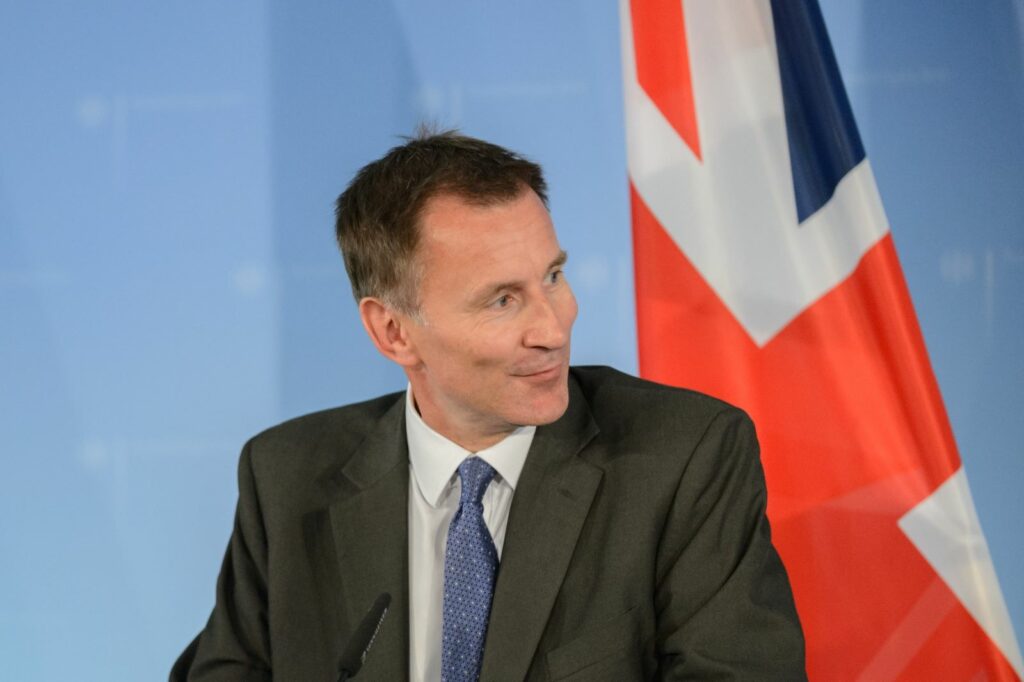“Some welcome news, some missed opportunities” in spring budget for farming
16th March 2023
The farming industry has welcomed extensions on the Energy Price Guarantee and fuel duty freeze in Chancellor Hunt’s spring budget announcement on 15th March, while the lack of action on frozen tax thresholds and green incentives has been labelled a ‘missed opportunity’.

Stock photo for illustration purposes only.
The Chancellor of the Exchequer has announced yesterday that the Energy Price Guarantee will remain at £2,500 for a further three months, helping families and businesses offset rising costs.
Ahead of the announcement, insolvency expert Tanya Giles, head of SME business at Atradius UK, warned the withdrawal of energy support could be ‘the final nail in the coffin’ for struggling UK businesses.
The freeze on fuel duty was also widely welcomed, especially by rural communities where the fuel poverty rate (15.9%) is higher than in urban areas, according to NFU Mutual.
“Farmers and rural communities rely more heavily on fuel than their urban counterparts, whether that is using red diesel for agricultural work, or white diesel and petrol for transporting produce around the countryside,” Chris Walsh, farm specialist at NFU Mutual, said.
The rural insurer also welcomed the £200 million fund announced to repair damaged roads that are seriously affecting those driving in the countryside.
Moreover, pension changes such as the increase in pension annual allowance and the scrapping of the lifetime allowance will help farmers plan for succession, NFU Mutual pointed out.
“Pensions provide an independent source of income in later life separate from the farm, which makes it easier for farmers to gradually step away and hand over more of the day to day management to the next generation,” Sean McCann, chartered financial planner at NFU Mutual, said.
“Pensions are also normally free from inheritance tax, and many farmers use them as a tax efficient way to build up funds that can be left to non-farming children.”
Meanwhile, the decision to leave income tax and child benefit tax thresholds frozen until 2028 has caused some disappointment. “With inflation still raging, these stealth taxes will leave many people with less money in their pockets in real terms,” Mr McCann noted.
However, further support with childcare could help farming families better manage their time and workload, he added.
“The new measure by the Chancellor which will see most parents get up to 30 hours of funded childcare for nine-month-olds to two-year olds, is good news for farmers with young children, provided there are local nurseries offering places.”
Environmental land management gains further prominence
Stevie Heafford, tax partner at accountancy firm HW Fisher, shed light on some subtle changes to agricultural property relief (APR) and inheritance tax (IHT) in the Chancellor’s spring budget that might otherwise have gone unnoticed.
“It reveals that the government is organising a consultation to explore the taxation of ecosystem service markets, and the potential expansion of agricultural property relief from inheritance tax to cover certain types of environmental land management.
“The government will also restrict the geographical scope of agricultural property relief and woodlands relief from inheritance tax to property in the UK from 6 April 2024.”
Mr Heafford said this might offer some comfort to those with concerns that the increasing environmental focus in farming might restrict the availability of inheritance tax allowances.
David Chismon, partner at Saffery Champness and head of the firm’s Land and Rural Practice Group, also welcomed news of the consultation and the possible expansion of APR.
“This area has raised questions for some time and hopefully this will be the start of the process to remove the uncertainties and discrepancies surrounding this area,” he commented.
However, he warned the increase in corporation tax from 19% to 25% will be a “significant blow” to those affected, with only 10% of incorporated businesses predicted to pay the higher rate.
With regards to fuel duty, Mr Chimson said: “The freeze on fuel duty for 12 months will also be welcomed, with no RPI increase for fuel in 2023/24 but, that excepted, for unincorporated businesses there was little tangible, leaving little headroom for them for investment, or in meeting rising costs of inputs, or indeed of bringing more people into the rural workforce.
“Finally, it should be noted that government is to introduce legislation in the Finance Bill 2023-24 to restrict the scope of Agricultural Property Relief and Woodlands Relief to property in the UK.
“Property located in the European Economic Area (EEA), the Channel Islands and the Isle of Man will be treated the same as other property located outside the UK. The changes will take effect from 6 April 2024.”
A missed opportunity to promote sustainable energy
Following the announcement, Joe Spencer, partner at MHA, says the government missed yet another chance to promote green and sustainable energy:
“From the perspective of the agricultural sector this was a limited budget. The tax reliefs announced won’t have very much impact on most farmers. The Chancellor also missed an opportunity to do more to promote sustainable energy.”
He added that providing the agricultural sector with sufficient incentives to install green energy will be central to the government meeting its net zero targets by 2050, and many were hoping the Chancellor would go further in encourage investment in green technology and energy efficient solutions.
“Still, the new policy on capital expenditure relief will provide some additional relief for those intending to invest in ‘kit’ above the level of £1m,” Mr Spencer continued.
“We have to hope it applies to unincorporated businesses too as it would be hugely restrictive if it does not. This was the issue with the old super deduction, which is expiring. Many farming business operating as partnerships were unable to take advantage of it.”


